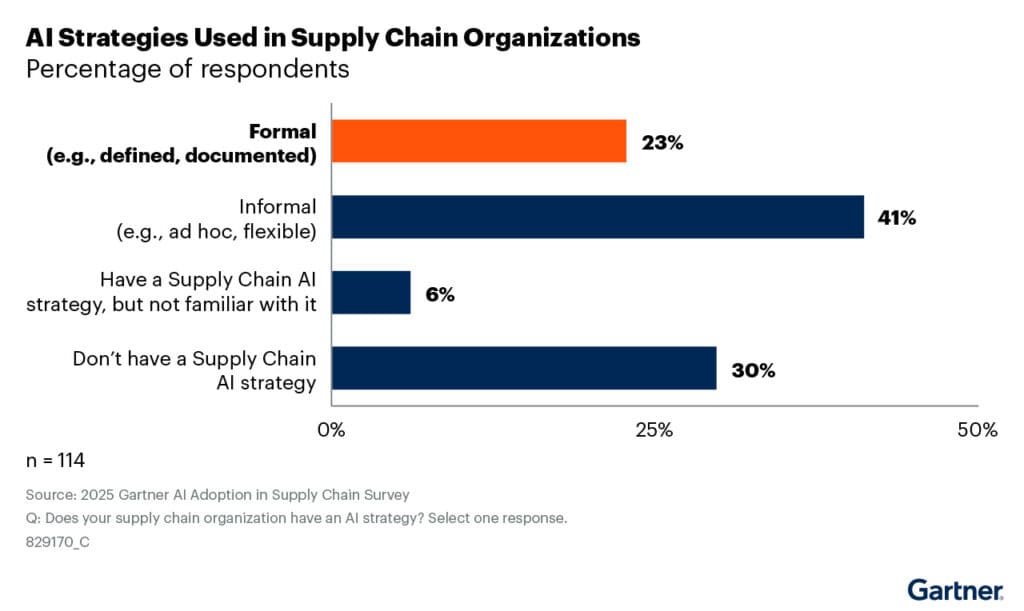A recent Gartner survey has revealed that just 23% of supply chain leaders have implemented a formal AI strategy within their organisations. This statistic raises concerns about the long-term potential for AI transformation in the supply chain sector, as many chief supply chain officers (CSCOs) prioritise short-term return on investment (ROI) over sustainable growth.

Benjamin Jury, senior principal at Gartner, noted that while immediate ROI is often a pressing concern, a focus on quick wins could hinder future advancements.
“CSCOs feel pressure to achieve short-term ROI from their AI investments, but they must ensure these quick wins don’t create future constraints,” he said. Without a structured approach, organisations risk developing inefficient systems that are ill-equipped to adapt to changing business needs.
The survey, conducted among 120 supply chain leaders who deployed AI within the last year, highlighted a significant disconnect between expectations and reality in AI investment strategies. Most CSCOs are currently adopting a “project-by-project” approach, focusing on immediate returns rather than establishing a cohesive strategy that ensures long-term funding for transformative initiatives.
This unstructured investment approach can lead to the creation of "franken-systems," complex architectures that complicate scalability and prolong the payback period for AI projects. While the allure of short-term gains is undeniable, such strategies often result in marginal long-term benefits and fragile technical infrastructures.
Moreover, the survey revealed that supply chain leaders predominantly utilise metrics related to efficiency and cost to evaluate AI success, often overlooking broader indicators like revenue growth and innovation. This suggests that many CSCOs still view AI primarily as a tool for cost reduction rather than as a transformative technology capable of reshaping business models.
To enhance their AI strategies, Gartner recommends that CSCOs develop a formal AI investment portfolio that balances short-term wins with long-term transformational goals. Key recommendations include:
- Establish a formal AI strategy: Create a documented strategy that outlines both immediate and future objectives along with clear success metrics.
- Utilise a run-grow-transform framework: Develop an investment portfolio that categorises projects into operational efficiencies ("run"), cross-functional enhancements ("grow"), and strategic initiatives ("transform").
- Invest in scalable infrastructure: Collaborate with CIOs to ensure that infrastructure can adapt to evolving business demands.
By adopting these strategies, supply chain leaders can better position their organisations for sustainable growth and innovation in an increasingly AI-driven landscape.



